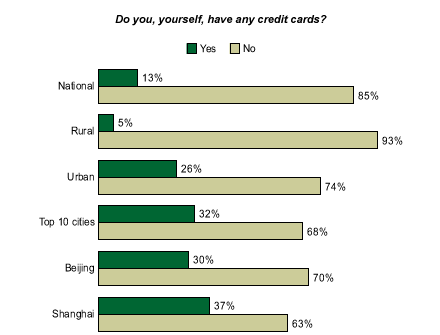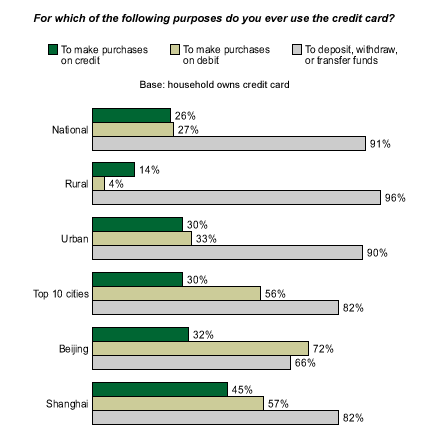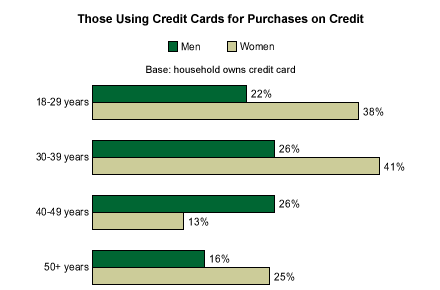China currently boasts one of the highest personal savings rates in the world -- but if consumer banks and credit card companies have their way, that may soon change. As the market for credit products grows and more Chinese consumers take out loans, the outlook for consumer credit looks good. The recent Gallup Poll of China provides a profile of who the average Chinese credit card user is and how their cards are used.
Who Has a Credit Card?
In many cases, what Chinese refer to as credit cards are actually what Americans more likely think of as debit cards or check cards -- they use them to access bank accounts rather than money borrowed on credit. But even defined broadly to include both types of use, only 13% of Chinese overall have such a card.

Predictably, many credit-card holders are from urban China, with 26% of urban respondents saying that they have a credit card, compared with 5% of rural respondents. The concentration of credit-card holders in the largest cities is even greater -- 32% of those in the top 10 largest cities have a credit card, and in Shanghai (the country's largest city), the corresponding percentage is 37%.
When the question is phrased slightly differently and respondents are asked if they or any members of their household have a credit card, the percentages shift upward -- but only slightly. The national average is 16%. In the 10 largest cities, 40% of residents say someone in their household has a credit card, as do 46% of residents of Shanghai.
Looking at credit card ownership by age, 25- to 29-year-olds are the most likely to own cards, at 28%. Credit card saturation is highest among those with highest household incomes -- 44% of those with annual household incomes of at least 30,000 RMB have credit cards.
What Are Credit Cards Used For?
It seems the majority of Chinese card holders do not use their cards to make credit purchases. Ninety-one percent of people in households that have credit cards use them to deposit, withdraw, or transfer funds. Twenty-seven percent use cards to make debit purchases from savings and only 26% use cards for credit purchases. The tendency to buy on credit is most widespread in Shanghai, where 45% of those in card-owning households say they use their cards for this purpose.

Once again, it is young adults who are leading the charge toward consumerism -- 25- to 39-year-olds are the most likely to use their cards to buy now and pay later. Slightly more than a third of people in this age group (35%) report their households use cards to make credit purchases. And among these young adults, women have a greater propensity to buy on credit. Thirty-eight percent of women in the 18 to 29 group and 41% of women in the 30 to 39 group buy on credit, compared with 22% and 26% of men in those respective age groups.


